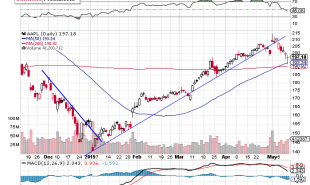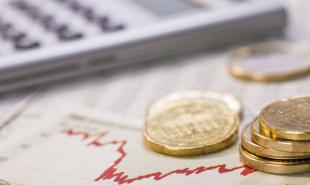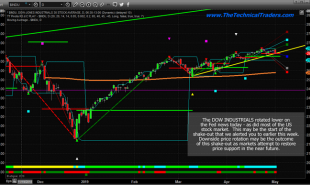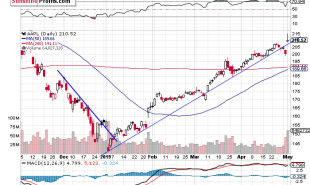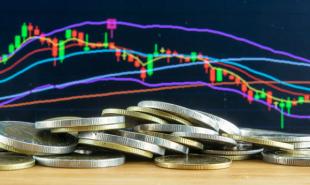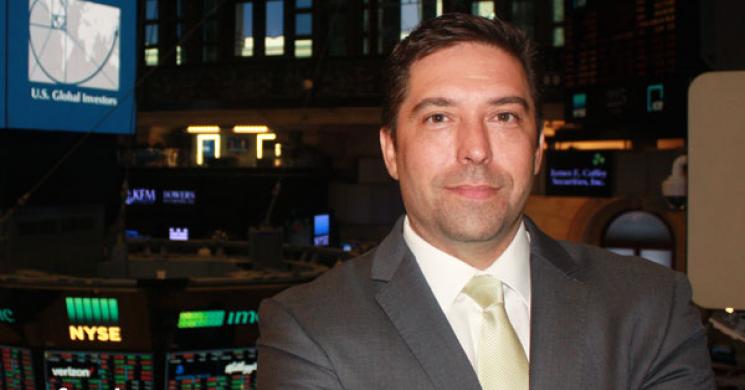
Meet Michael Matousek – head trader at U.S. Global Investors. With almost 20 years’ worth of industry experience, Matousek is responsible for monitoring our investment portfolios and conducting day-to-day trading. In addition to advising the investment team on market behavior, he spends his day buying and selling based on technical metrics.
Matousek joined U.S. Global Investors in January 2008 and was promoted to head trader not long after. Before joining our team, he was director of institutional sales and trading for a broker-dealer, advising the firm’s hedge fund clients on trading strategy and implementation.
In this brief Q&A, Matousek recounts how he found his way to U.S. Global Investors and shares his take on what it means to be a trader.
Tell us about your journey to become a trader. What drew you to the investment business?
I always thought that I wanted to be a stockbroker. Junk bonds were big in the ‘80s when I was in high school. After graduating from college in the late ‘90s, I got a job as a stockbroker but I didn’t really fully understand the industry. It was very different from what I had expected it to be. While I was there, I started to speak with the traders that we’d send our orders to.
Then, a position on the sell side opened up at a firm in Chicago, where I worked for five or six years. After they were bought by a larger company, I did consulting work, similar to helping people trade.
One day, I saw an ad for U.S. Global Investors. Ralph Aldis, a portfolio manager at USGI, and I had met before and I thought it would be interesting to see what it’s like working on the buy side as a trader. One of my friends said, “You’ve got a chance to work with Frank Holmes! You’ve got to do that!”
What was the most memorable trip you’ve taken into the field?
The most memorable trip I’ve taken was going to Hong Kong for a CLSA conference in 2012 or 2013. We met a lot of diverse people and talked about so many different trading strategies. Seeing firsthand how their financial district was changing was very insightful. Their markets were really starting to ramp up.
Every night was a big party. Katy Perry played in concert. The last night was standing room only in a small venue with catered food. They did things like that every day of the conference. Mike Tyson was a speaker once.
During that trip, my wife and I went to mainland China for a day. Also, I had my first espresso there. I didn’t know what it was before then and probably had 20 of them.
ETFs have become increasingly popular in the last few years. What is your take on the shift from mutual funds to ETFs?
It’s funny. I was a proponent of ETFs even before I came on board at U.S. Global Investors. In fact, I started trading them back in 1998 and I used to have a newsletter focused on ETFs. When I first came to USGI, we were a mutual fund shop. Now, I manage our ETFs.
I think the industry will gravitate towards ETFs. Mutual funds have a place, but for a select group of investors. Not necessarily asset allocators. They are useful when investors want to outperform since mutual funds can add extra alpha to your portfolio.
What should traders keep in mind for the remainder of 2018?
Everyone has a different view of what a trader is. My opinion has been more short-term in nature. Not buying and holding something for six months or a year. You’re trying to find opportunities. Admittedly, my background in day-trading might skew my thoughts a bit.
Knowing that, I don’t believe in predictions. I don’t want to have an opinion. If the market is doing this, I want to do this. If it’s doing that, I’ll do that. You try to stay with the trend based on your investment time horizon.
Want to stay on top of market trends? Subscribe to the award-winning Investor Alert newsletter for a weekly recap of the biggest market-moving events.
-----------------------------------------------------------------------
All opinions expressed and data provided are subject to change without notice. Some of these opinions may not be appropriate to every investor.
Alpha is a measure of performance on a risk-adjusted basis. Alpha takes the volatility (price risk) of a mutual fund and compares its risk-adjusted performance to a benchmark index. The excess return of the fund relative to the return of the benchmark index is a fund's alpha.
U.S. Global Investors, Inc. is an investment adviser registered with the Securities and Exchange Commission ("SEC"). This does not mean that we are sponsored, recommended, or approved by the SEC, or that our abilities or qualifications in any respect have been passed upon by the SEC or any officer of the SEC.
This commentary should not be considered a solicitation or offering of any investment product.
Certain materials in this commentary may contain dated information. The information provided was current at the time of publication.
Read more by Frank Holmes



